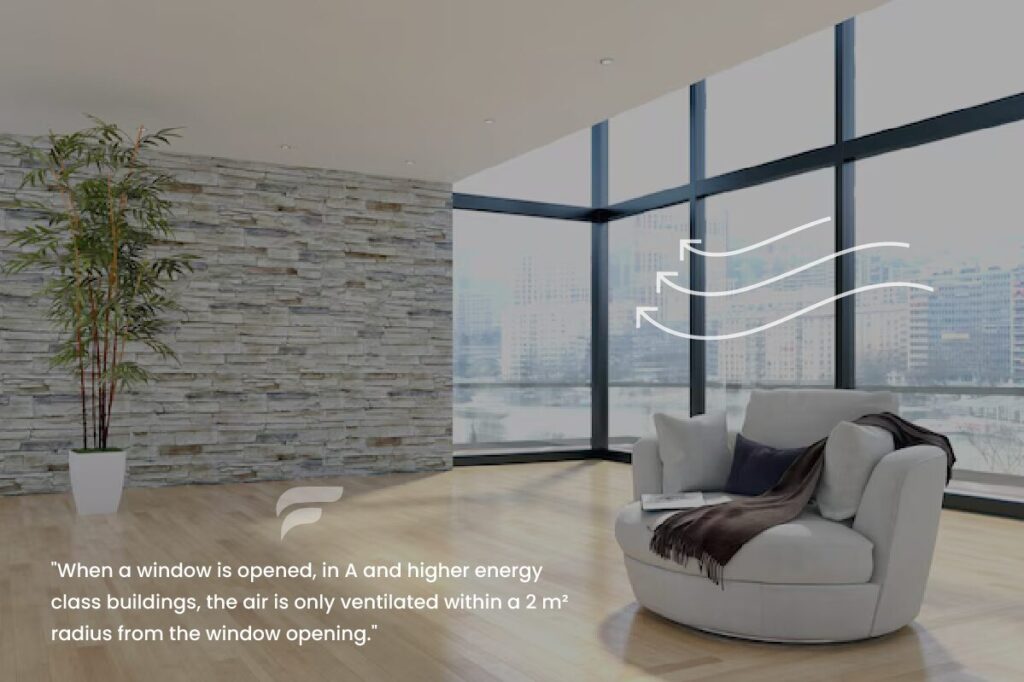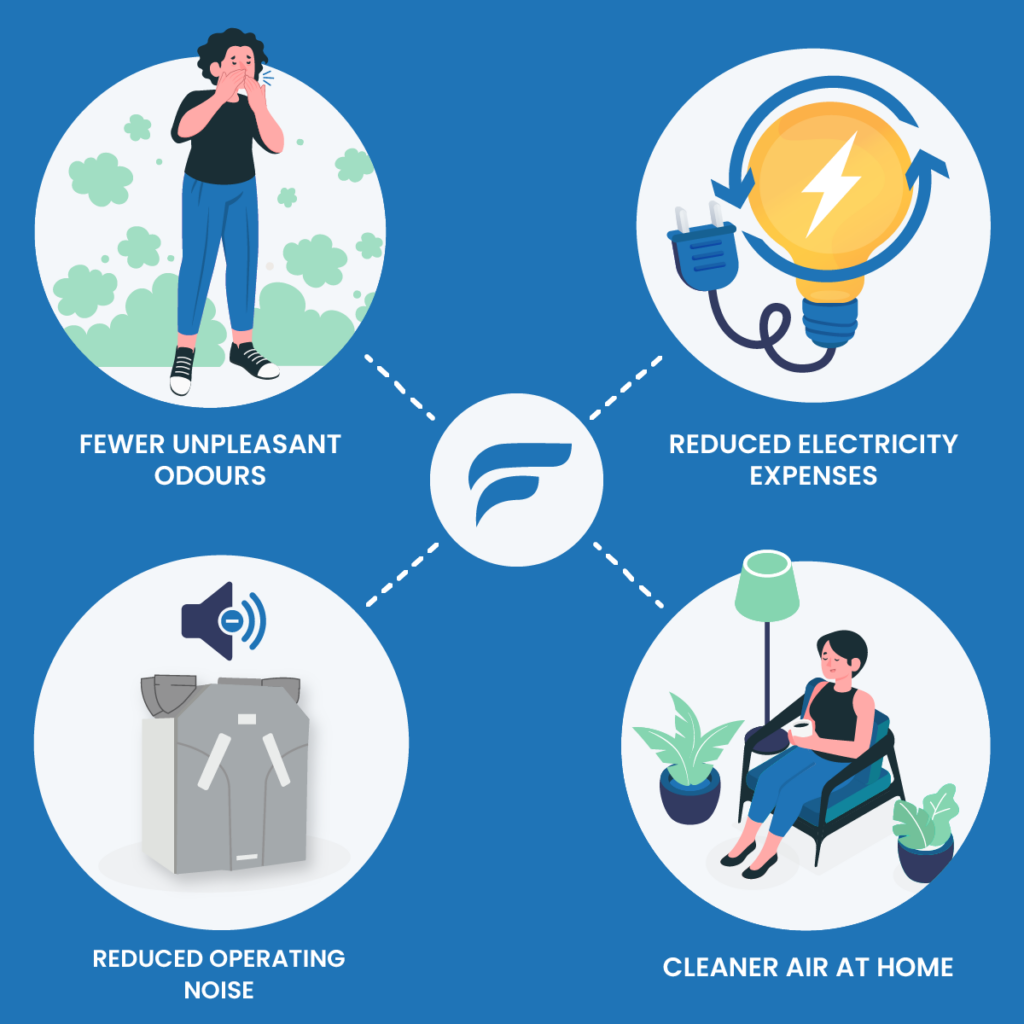Last updated: November 7, 2025
Clean, fresh air is one of our most basic human needs. It impacts everything — from our circulation and lung health to how we feel emotionally each day. While taking a walk in the fresh air helps, it’s not enough. Maintaining good indoor air quality is just as important — especially considering how much time we spend at home.
The Hidden Challenge of Airtight Homes
With advances in construction technology, energy-efficient homes (A, A+, A++) have become the new standard. These buildings are praised for their thermal insulation and airtightness, which help reduce heating costs. However, there’s a trade-off: in airtight homes, natural air circulation is minimal, making proper ventilation a real challenge.
According to generally accepted standards, indoor air should be exchanged every 2–3 hours. But when you open a window in a tightly sealed home, only the immediate area around it (within about 2 m²) gets ventilated. Sure, you can create a draft by opening multiple windows — but during winter, this means losing precious heat.

A Mechanical Ventilation with Heat Recovery (MVHR) system solves this problem. It removes stale indoor air and brings in fresh outdoor air, while recovering and reusing heat in the process. Depending on its capacity, an MVHR unit can exchange dozens to thousands of cubic meters of air per hour, all while using electricity efficiently. However, there’s one crucial component that keeps this system running smoothly: the filters.
Why MVHR Filters Matter
MVHR filters are the gatekeepers of your indoor air. They trap dust, pollen, soot, and other airborne particles before they can enter your living space. Over time, these filters accumulate pollutants — and if not replaced regularly, problems begin to stack up.
Here’s what happens when filters aren’t changed:
- Reduced airflow: Clogged filters restrict air movement, reducing the system’s ability to ventilate your home effectively.
- Higher energy use: The fan has to work harder to push air through dirty filters, increasing your electricity bills.
- Moisture buildup: Poor air exchange leads to higher humidity levels indoors, which can eventually cause mold.
- More noise: The harder the unit works, the louder it gets — especially noticeable at night when the home is quiet.

When Should You Replace MVHR Filters?
To avoid these issues and ensure optimal performance, it’s recommended to change your filters every 3 to 6 months. If you live in a polluted urban area, you may need to do it even more frequently. It’s also a good idea to replace the filters:
- Before the heating season starts, and
- Right after the season ends.
Clean Filters = Clean Air
By replacing your MVHR filters on time, you’re doing more than protecting a machine — you’re investing in your health. You’ll breathe cleaner, fresher air daily and help your system run longer and more efficiently.


